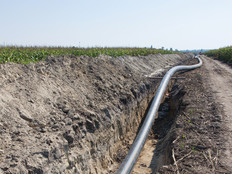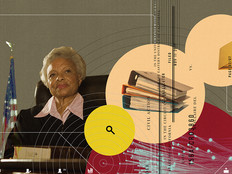FCC Provides Money for Broadband in Rural Arkansas and North Carolina
Taking a cue from Alabama, both Arkansas and North Carolina will provide citizens in rural areas with broadband Internet. Now it appears that the effort is actually in motion, as the Federal Communications Commission (FCC) gave two telecommunication companies money for expansion.
A combined total of $54 million from the FCC’s Connect America fund was given to AT&T and CenturyLink to outfit nearly 100,000 homes and businesses in Arkansas, StateScoop reported. “The financial support provided by American ratepayers through the Connect America program is an investment in the future of our rural communities that will pay dividends for all Americans for years to come,” FCC chairman Tom Wheeler told StateScoop.
Furthermore, the initiative will provide uploads at 1 megabit per second and downloads at 10 megabits per second. Mark Myers, Arkansas’ chief technology officer and director of the Department of Information Systems, championed the deep impact of this IT measure.
“[The funding] will strengthen the state’s current efforts to bring high-speed fiber optic broadband connectivity to every school district in Arkansas, as well as benefit rural health care providers, community business owners and families,” he explained to StateScoop.
Meanwhile, North Carolina will utilize what CIO Chris Estes called a “critical piece of infrastructure,” which will come from four telecommunications companies:
North Carolina also will receive broadband deployments from four telecommunications companies — AT&T, CenturyLink, Frontier and Windstream — after a $19 million grant from the FCC. The new broadband capacity is expected to reach more than 68,000 people and businesses inside the state.
As state’s shore up their information plans for the future, it’s imperative that no one is left behind.









